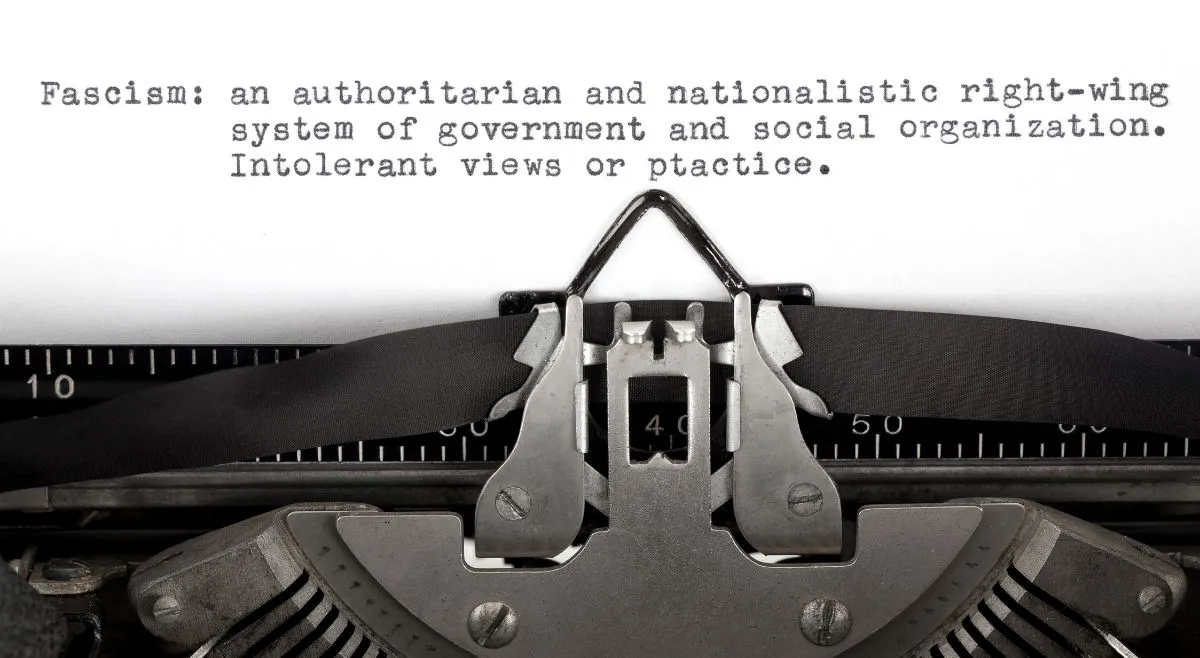- By Ridam Sharma
- Wed, 08 Oct 2025 12:50 PM (IST)
- Source:JND
What Is Fascism? Fascism is a political philosophy that came into light in the early 20th century. Fascism is a political philosophy which comprises behaviours of authoritarian nationalism, suppression of dissent, and centralised authority. The term is often used by political experts and social reformers to point at the regimes and movements that go against the value of democracy, advocate absolute power, and, in a way, take away individual rights for the cause of national unity. However, for a better understanding of the term, let’s take a look at its origin, characteristics, and modern relevance.
Origins Of Fascism
Fascism began in post-World War I Europe, particularly in Italy under Benito Mussolini, as per the Library of Economics and Liberty. The term fascism is derived from the Italian word Fascio, which means bundle or group, highlighting the importance of unity and strength. In the post-war era, most Europeans faced economic struggle, political crises, and social unrest. People at that time were not happy with liberal democracy and were scared by the beginning of communist ideology. At that, people were not happy with the way the world was working; they needed a new ideology for a fresh start.
Benito Mussolini founded the National Fascist Party in 1919, promoting a vision of a strong, centralised state ruled by a single leader. The party’s whole focus was aggressive nationalism, militarism, and loyalty to the state above everything else. Mussolini’s movement quickly inspired a few similar ideologies across Europe, and one of them was Adolf Hitler’s Nazi regime in Germany. However, the Nazi ideology was not just fascism, but with racial superiority and anti-Semitism. The two systems had a common authoritarian look, which is a rejection of democracy, discouragement of dissent, with all focus on the country and its leader.
Meaning and Core Characteristics Of Fascist Ideology:
Fundamentally, fascism is built on the belief system that the state is above everything. Free speech, co-existing, and individual rights are something that is affecting the unity of the place. Additionally, the leader or the dictator is the representative of the national will.
Major Characteristics Of Fascism:
1. Authoritarian rule, which means that the power is centralised in one leader or party, with no acceptance of opposition.
2. Nationalism, which is the ideology of extreme nationalists and glorifies the nation, usually at the cost of minorities.
3. Militarism is also very evident under the fascist governments, which use force to ensure law and order and extend influence.
4. Propaganda also plays a major part in the Fascist government, where media control and education manipulate public opinion to match state objectives.
5. Anti-democratic spirit is also at its peak, with elections, if conducted, being usually rigged, and oppositional voices are abolished by intimidation or violence.
Fascism was made to bring unity. However, it brought fear, limited freedom, and undervalued the essence of justice, which left great human suffering in its wake.
Modern Relevance of Fascist Ideology
After World War II and the fall of Mussolini and Hitler, the ideologies around Fascism spread across the globe. Modern political experts and historians referred to the term as Neo Fascism, which meant the new form of fascism, which comprised characteristics of populist nationalism, xenophobia, and assaults on democratic norms.
In other nations, people have opted for authoritarian methods of fascism, like making cults of personality, discrediting the media, and adding fuel to the ethnic or religious tensions to seize authority. The emergence of far-right groups, hate politics, and profound polarisation in democracies showcases how fascist impulses can resurface even without employing the name openly.
Also Read: What Sparked Massive Anti-Immigration And Anti-Racism Protests In London?
Fascism's modern significance is in the warning. It shows how economic desperation, fear of innovation, and strong leadership can drive societies toward radicalism. Modern democracies need to remain on their guard by ensuring free expression, maintaining the rule of law, and promoting critical thinking.
Understanding fascism isn't just about the political history of the world; it's learning how thin and volatile the concept of freedom really is, and how quickly it can be undermined by domination.

